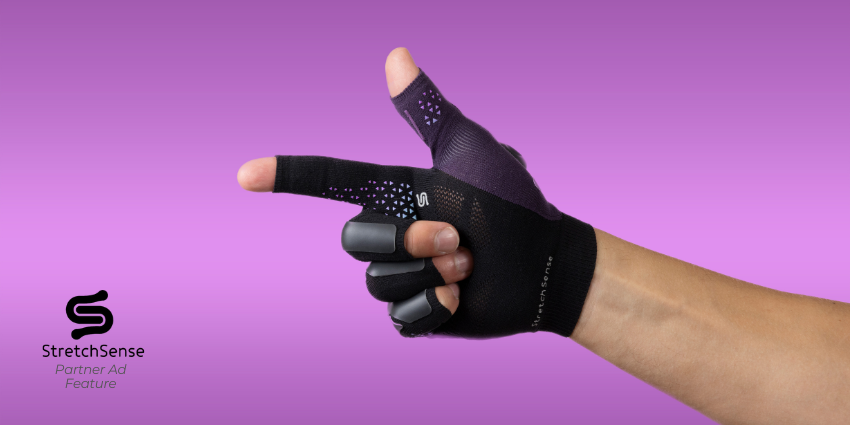Manufacturing and technology consultancy firm BearingPoint partners, alongside insurers Suva have launched Swiss Safety VR; offering free immersive workplace safety training on Meta Quest 3. This collaboration could be more than just another XR deployment – it may signpost enterprise software’s next evolution and the mainstream business adoption of XR.
After years of expensive pilots and limited-scale deployments, the extended reality industry may have found its enterprise breakthrough moment. The Swiss Safety VR platform could constitute more than innovative safety training; it demonstrates fundamental shifts in in how enterprise software is sold, used, and valued across the XR ecosystem.
When Safety Meets Scale
Between 260,000 and 300,000 workplace accidents occur each year in Switzerland alone, with construction sites bearing the brunt of these incidents. Behind each statistic lies human suffering and massive financial losses for organizations. Traditional safety training methods simply aren’t cutting through the noise of time pressure, negligence, and the inherent risks of high-stakes work environments.
We’ve already witnessed employers use XR for immersive onboarding programmes. But what BearingPoint and Suva have built goes far deeper than traditional VR training modules. Their Swiss Safety VR platform creates “visceral understanding” – that gut-level know-how that only comes from experiencing something firsthand.
A New Era for XR Business Models
Here’s what captured our attention: Swiss Safety VR costs nothing to users, instead reducing insurance costs for Suva and opening the door for future partnerships. This pricing strategy could reshape enterprise software economics. Enterprise-grade immersive training that would typically require substantial licensing fees, custom development, and deployment support is now accessible to any organization with a Meta Quest 3 headset. When market-leading solutions become freely available, it often forces competitors to justify their premium pricing or risk becoming obsolete. For the XR industry, this development might accelerate mass-market adoption.
BearingPoint and Suva believe that eliminating financial barriers for enterprises and sharing development costs with industry stakeholders like trade bodies will drive broader adoption – ultimately delivering greater value than relying on traditional licensing revenue. This approach mirrors successful platform strategies in consumer technology, where free access drives ecosystem growth and creates other revenue generation opportunities.
The Next Wave of VR Adoption
The Swiss Safety VR launch arrives at an important moment for extended reality adoption. As of 2024, over 65% of Fortune 500 companies were actively deploying VR-based training solutions, indicating growing enterprise confidence in the technology’s maturity and effectiveness.
Workplace training will likely be one of the key business verticals driving virtual reality enterprise adoption. Unlike entertainment or social applications, workplace training solves concrete business problems with measurable outcomes: reduced accidents, improved retention, standardized procedures, and scalable knowledge transfer.
These deployments share common characteristics: clear ROI metrics, scalable implementation, and integration with existing training infrastructure. Swiss Safety VR demonstrates how these principles can extend beyond large enterprises to small businesses, educational institutions, and entire industry sectors.
Where Next for VR Training?
While Swiss Safety VR targets construction safety, its platform approach enables expansion across industries. We’ve already seen XR technologies enable medical professionals to practice complex surgical procedures and aid employee onboarding. The principles BearingPoint and Suva have proven – that immersive training improves retention, reduces costs, and scales effectively – apply to virtually any learning scenario.
What This Means for the XR Industry
The Swiss Safety VR model suggests three potentially critical developments for the extended reality industry:
- Enterprise software embracing platform economics. Free foundational tools may drive ecosystem growth, potentially creating opportunities for premium services, industry-specific content, and integration partnerships.
- Training applications seem to be proving XR’s enterprise value: Organizations tend to invest in measurable outcomes – reduced accidents, improved retention, standardized procedures – rather than technological novelty.
- Mass adoption might require accessible pricing: When financial barriers disappear, adoption could accelerate across organization sizes, geographic regions, and industry verticals.
The question isn’t whether enterprise markets will embrace extended reality, it’s which companies will build the platforms, content, and services that define XR’s next growth phase.
Swiss Safety VR suggests the answer lies in mass access to genuinely useful technology, one training session at a time.







